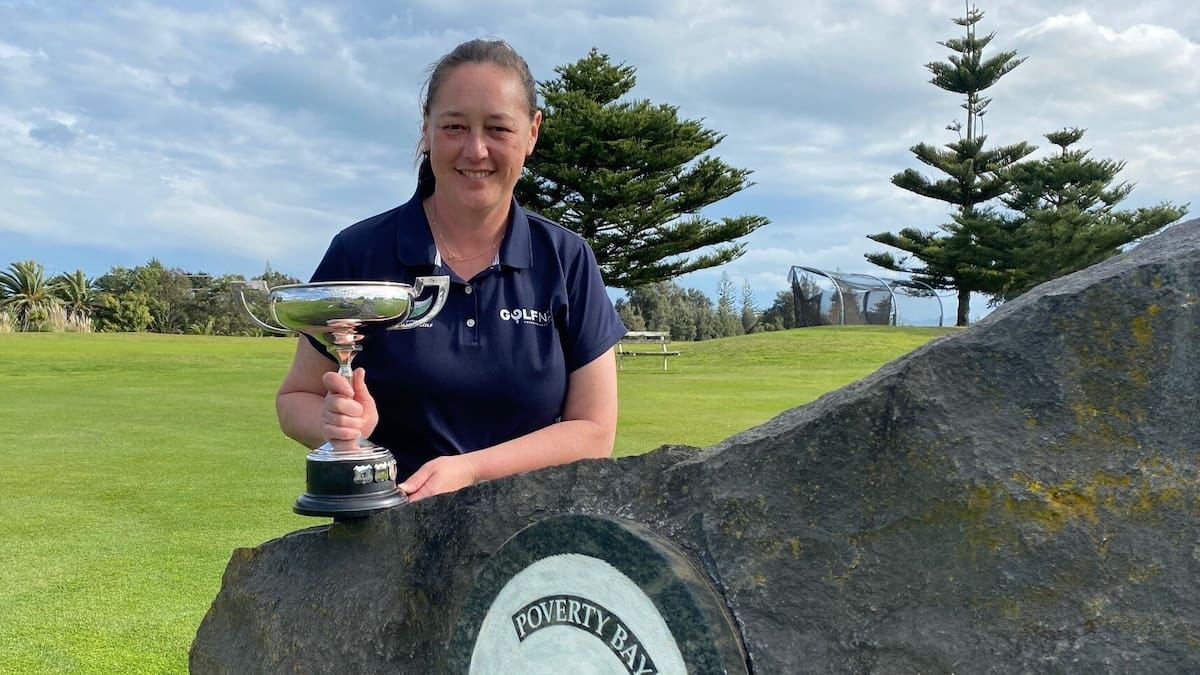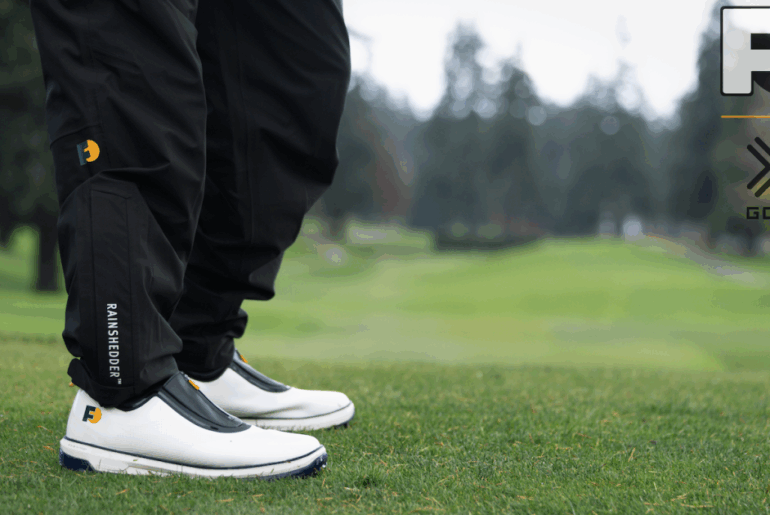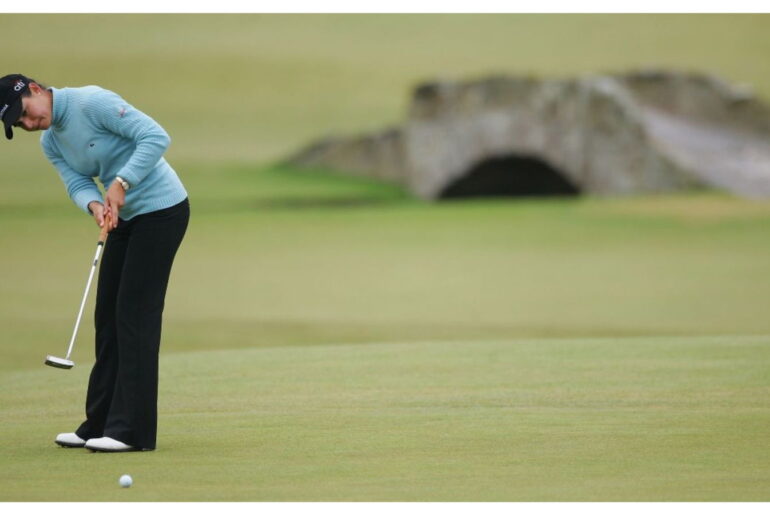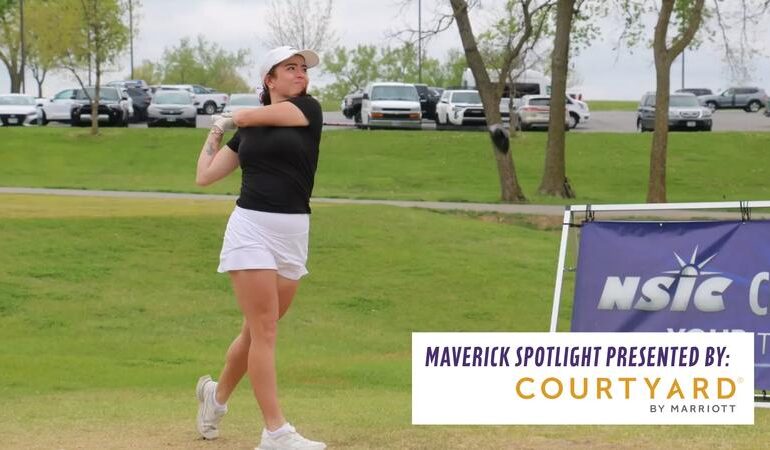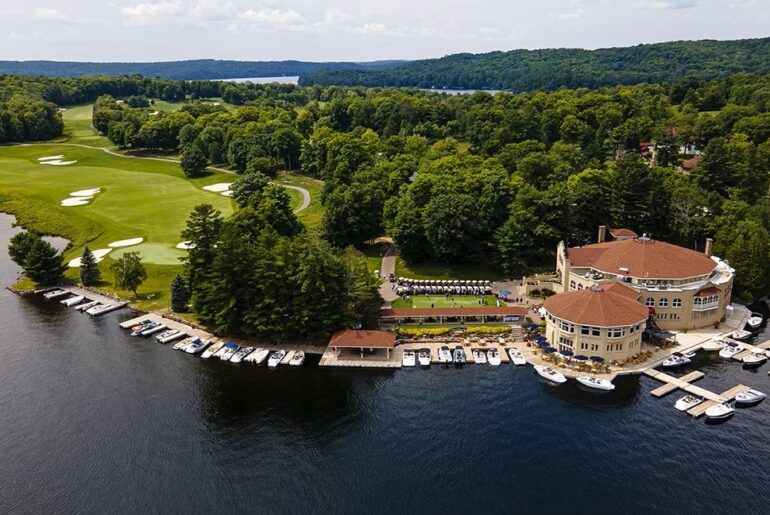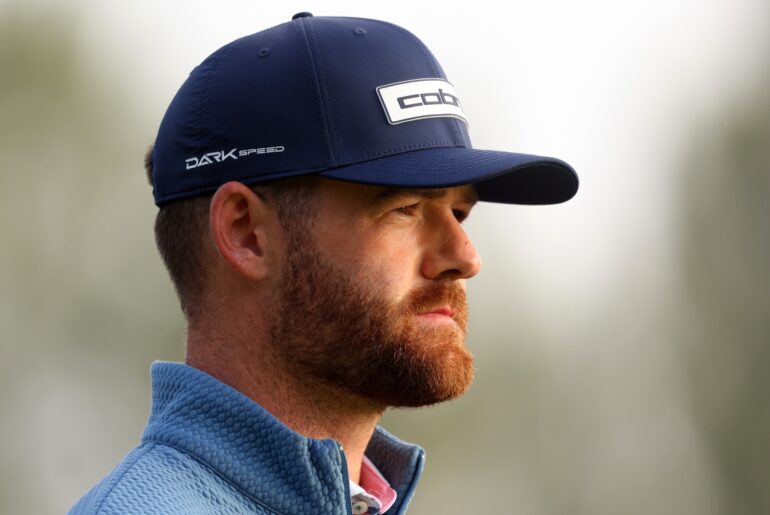Her victory over nine-time winner Hay was confirmed when they finished the 16th hole with Tito three-up.
“I knew she had a reputation for being a steady golfer,” Tito said.
“I was two up after two, and I was never down. I knew it would be a close match and putting would be important. My putting was not as ‘on’ as it was yesterday [Monday].
“Karen made some really good chips and putts when I didn’t need her to, but I wasn’t surprised.”
Tito lives in Kerikeri and is a member of the Waitangi Golf Club, where she plays off a 2.0 handicap. The course sits on land where the Treaty of Waitangi was signed.
She enjoyed her Poverty Bay Open experience and not just because of her win.
“The ladies were just lovely golfers and nice to talk to. We’re all of an age where you can have a conversation.”
Tito is employed by Golf New Zealand, in partnership with New Zealand Māori Golf, as Māori golf development manager. The focus of her work is encouraging young Māori to play golf and helping those who do play to develop their game.
She’s had the role for nearly three years but been active in the New Zealand Māori Golf Association for 20 years.
Tito was on the board that ran the New Zealand Māori Golf National Tournament and served at different times as tournament general manager and tournament director.
She has been playing golf since she was 11. Raised in Tapora, west of Wellsford, she learned to play on the then-nine-hole course of the Tapora Golf Club that grandparents Chum and Pepi Tito helped found in 1964. (In 2023, club members spent $500,000 on making their nine-green, 18-hole course the first in New Zealand to have all its greens made of artificial turf.)
“Grandma and Grandad were both club champions in their time,” Aroha Tito said.
“It was more my grandfather who got me into golf.”
Once he had laid the groundwork, successive coaches and mentors continued the work.
Ted McDougall, one of New Zealand’s leading golfers from the 1950s to the 1980s, passed on tips from his base at Mangawhai Golf Club, east of Wellsford, for a couple of years when Tito was in her mid-teens.
She played all her junior golf for Northland but at 18 she headed to Auckland. Jamie Kupa, the golf pro at the Chamberlain Park course at Western Springs, was influential as the coach with Ngaki Tamariki, an organisation started by Vic Pirihi and Mick Brown, the first principal Youth Court judge.
“It was like an academy for Māori golfers,” Tito said.
“Michael Campbell [2005 US Open winner] and Phil Tataurangi [1996 Australian PGA champion] had just graduated when I arrived.
“In my time, eight or nine of us were in the programme. They funded six of us to go to the Jack Newton Classic in Newcastle, Australia, in the mid 90s.
“We went to Jamie for coaching when required. I had a mentor, Jo Bonnington, a top golfer in Wellsford. A couple of girls and a couple of guys from my time went to American universities on golfing scholarships.
“Ngaki Tamariki helped a lot of Māori golfers, who in turn have done their bit for Māori golf in New Zealand.
“I didn’t want to be a professional golfer and I didn’t want to go to America. It would have been too far away from home.”
Tito entered the Poverty Bay Open on the suggestion of friends Kennedy Sarich, a doctor at Gisborne Hospital, and her partner Dom Wilson. Sarich had run Patutahi Golf Club’s Matariki Tournament in June.
“I helped her a little bit and played 15 holes at Poverty Bay while I was here, to familiarise myself with the course, but the conditions were a lot different. It was freezing.”
For this trip, she was accompanied on the 10-hour drive by her two dogs, a Maltese bichon called Charlie and a shih tzu called Malia – “they’re good company”.
She carries no injuries, other than back problems she’s always had, and plans to keep playing golf for the foreseeable future.
Tito’s opponent in the final, Hay, at 70, is an example of golfing durability.
Tito said in her prizegiving speech she could see how Hay had won her club championship 22 times.
Hay says she has her aches and pains “like anyone else” but she’ll keep playing as long as she can walk the course.
“If I have to get in a cart, I’ll finish,” she said.
Hay was pleased with her form in the final and chuffed she never went more than three down in the match.
She’s been retired for 10 years, which makes it easier to get time on the course. Before that, she had to work golf around a nine-to-four schedule at Pearce’s Saddlery, where she helped her brother Barry Pearce for 30 years in the shop, making saddle cloths and bags, and doing repairs.

